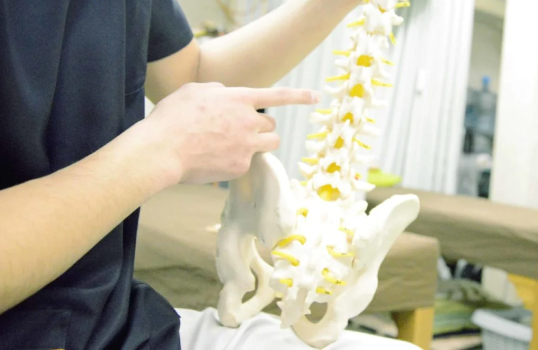At our Winnipeg physical therapy clinic, we treat many people from athletes with sports injuries to office workers with postural pain. We provide physical therapy services to people of all ages from children to the elderly, with many different types of health concerns. Our physiotherapists regularly treat people who have had car accidents, workplace injuries, or need rehabilitation before or after surgery, to name a few.
Physical therapy treatment can involve a wide variety of techniques depending on the nature of your orthopedic condition. Treatment programs at our Winnipeg clinic typically include hands-on techniques, education, exercises, and other modalities. Your progress throughout your therapy program will be regularly re-evaluated. Your physical therapist will also ask for your feedback to ensure that you are comfortable with all aspects of your treatment program.

Physiotherapy is a healthcare profession that aims to maximize people’s mobility, strength, function, and health to optimize participation in activities of daily living. Physiotherapy also involves rehabilitating injuries, orthopedic impairments, pre and post-surgical conditions and many others.
When you arrive at our clinic for your first physiotherapy session, we will collect some basic information from you to start your file. We can help you find out information about any physiotherapy insurance coverage you may have. We will ask you to fill out an intake form that covers basic medical history and details about your area of complaint. Once this is completed, you will be brought to a private assessment room.
Your physiotherapist will go over your intake form and ask you about your area of concern. Any information that you share with your physiotherapist is confidential. Your physiotherapist will then perform a physical therapy assessment of things like your movement, strength, balance, and flexibility.
Your personalized physical therapy plan is designed to support your recovery and help you reach your health and mobility goals. Based on your assessment, your physiotherapist may incorporate a variety of treatment methods to address your specific needs. These may include hands-on techniques, therapeutic modalities, education, and targeted exercises—all working together to reduce pain, restore function, and prevent further injury.
Hot/cold packs, TENS units, ultrasound, or traction may be used to help treat your injury or impairment.

You will be instructed in an exercise program to promote the healing of your injury as well as improve your mobility, flexibility, and strength.

This includes a variety of hands-on therapy techniques such as joint mobilizations, massage, and assisted stretches to improve joint movement and reduce pain.

Your physiotherapist will give you information about your injury or impairment and the best way to treat it.

This includes a variety of hands-on therapy techniques such as joint mobilizations, massage, and assisted stretches to improve joint movement and reduce pain.

Hot/cold packs, TENS units, ultrasound, or traction may be used to help treat your injury or impairment.

Your physiotherapist will give you information about your injury or impairment and the best way to treat it.

You will be instructed in an exercise program to promote the healing of your injury as well as improve your mobility, flexibility, and strength.

You may have coverage for physiotherapy through a private insurance plan, the Workers Compensation Board of Manitoba (WCB) or Manitoba Public Insurance (MPI). Manitoba Health offers post-operative hip and knee replacement physiotherapy coverage. Treaty benefits currently does not cover physiotherapy in private clinics in Winnipeg. We do direct billing with the WCB, MPI and most private insurers depending on what your plan allows. We can help you find out more information about what you may be covered for.
No. We do not require a doctor’s prescription for physiotherapy treatment. However, some insurance plans require a prescription for physiotherapy to be covered in Winnipeg clinics. You can find out if your plan requires a prescription for physiotherapy by calling your insurance provider. We can assist you to find out this information.
Be sure to wear or bring clothing that is loose fitting and allows exposure of the area to be treated. We can also provide you with a medical gown or shorts if needed. If you have a doctor’s prescription, imaging results or other relevant information please bring that in as well. If you have coverage under a private insurance plan and would like us to do direct billing for your treatment, please bring your insurance card or plan numbers with you. If you are under the Workers Compensation Board or Manitoba Public Insurance, please bring your claim number with you.
Physiotherapists are university educated and licensed healthcare professionals. The University of Manitoba’s Physical Therapy program in Winnipeg has now transitioned from a Bachelor’s of Medical Rehabilitation degree (BMR (PT)) to a Master’s of Physical Therapy degree (MPT). Studies in physical therapy focus on areas related to anatomy, physiology, exercise, medicine, pathology and physiotherapy assessment and treatment techniques to name a few. After graduating, physiotherapists are only allowed to begin practicing independently once they successfully complete national written and practical licensing exams.
Yes! Physiotherapists are exercise specialists and you will always be given exercises to work on at home to help with your recovery. These exercises will be tweaked and progressed throughout your therapy program based on your needs. Your physiotherapist may also suggest other things to try at home such as a variety of pain relieving techniques, changes to your work station, better lifting techniques and footwear modification to name a few.
The number of physiotherapy treatment sessions you will need depends on the nature of your injury or impairment. Many different factors can affect healing time such as the severity of injury, general health and age to name a few. Your physiotherapist will discuss this with you further after your assessment. Your therapist will also continually re-evaluate your progress throughout your therapy program and make modifications as needed. Once you have fully healed and have reached your therapy goals you will be discharged from your physiotherapy treatment program.